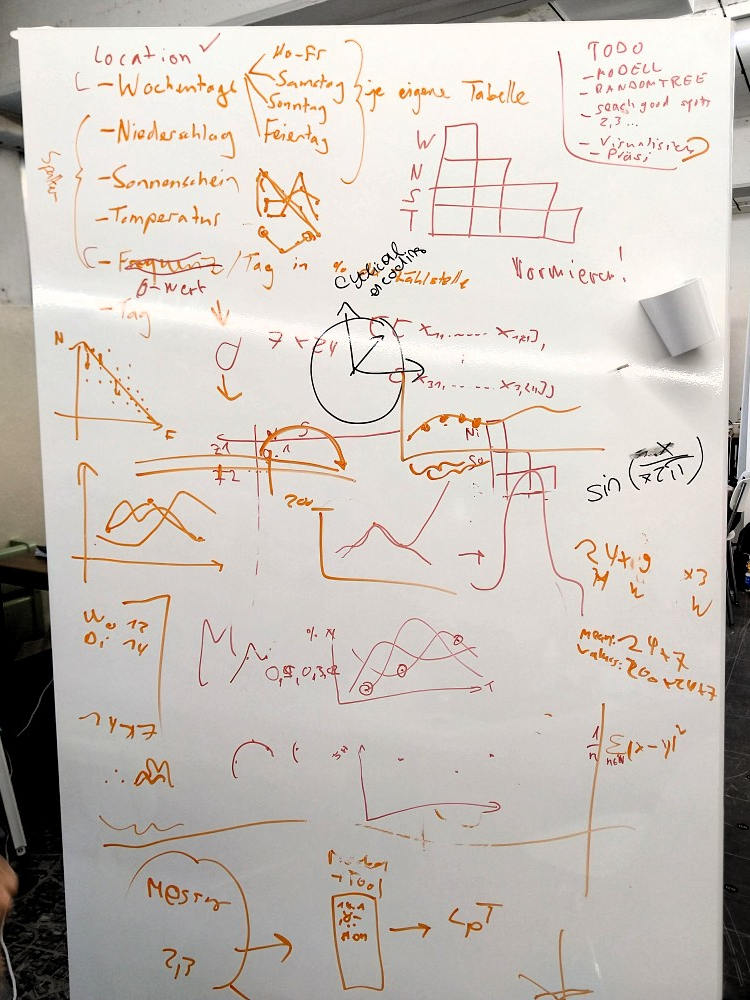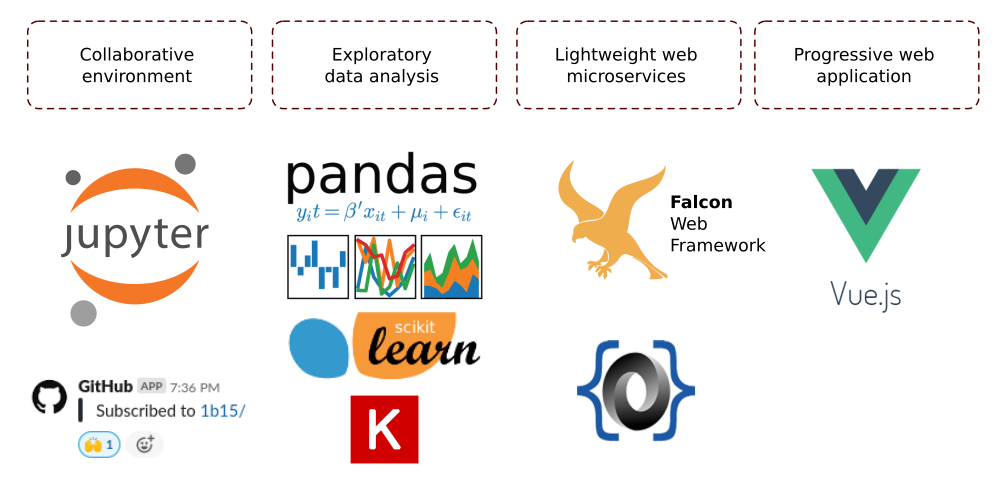Status
We have collected strictly anonymous and open access data, analyzed it using open source libraries in the Python language, and created a minimal demo application shown in the slides above. Visit our open source repository to see details in the README, give us your ★, leave us an 🗨️ Issue with your questions.

The Challenge
Imagine you are responsible in the city of Lucerne (or any other Swiss city) to plan for better pedestri-an infrastructure. For this you need to know how many people walk past specific locations during a day. If you knew which two hours of the day you would need to count to extrapolate the data for the whole day and if you had a tool you could enter this data to automatically get the daily volumes your job would be a lot easier. Maybe the tool would even adjust for the day of the week or weather.
The problem is, at the moment no such tool exists and we don’t really know which hours are best for doing counts to extrapolate to data to the whole day. Based on data of automatic pedestrian counters in Zurich and Basel, pedestrian flow charts and extrapolation factors could be derived with clever algorithms. This then could be translated into a practical tool for entering the data to easily get results. The challenge is submitted for pedestrian volumes but the same would apply for bicycle data. No such tool exists in Switzerland – neither for walking nor for cycling data.
Further information with the link to data sources here.
Team
- Justus // @Jukamala
- Georg // @1b15
- Laurin // @1tchy
- Oleg // @loleg
- Daniel Sauter, Urban Mobility Research Expert
So, what are you doing this weekend..? 🌧️ #weatherpatterns #datascienceftw #opendatahackdays pic.twitter.com/4kY2FlsaR2
— icanhaz🌐pen? (@sodacamper) November 30, 2019
Inspiration
In addition to the analytical components, we have thought about the implications of this project in terms of open data publication, open source resources, and even to the possibility of an open hardware / solution to people counting. Visit our Slack channel for more background discussion.
By Wolf-Dieter - Own work, CC BY 2.5, Link
WalkFlow: Analyzing pedestrian volumes
A project from the Open Data Hackdays: Tourism created on November 29-30, 2019 in Lucerne, Switzerland.
See also our project page at hack.opendata.ch
The challenge
Imagine you are responsible in the city of Lucerne (or any other Swiss city) to plan for better pedestrian infrastructure and tourism services. For this you need to know how many people walk past specific locations during a day. If you knew which two hours of the day you would need to count to extrapolate the data for the whole day and if you had a tool you could enter this data to automatically get the daily volumes your job would be a lot easier. Maybe the tool would even adjust for the day of the week or weather.
The problem is, at the moment no such tool exists and we don’t really know which hours are best for doing counts to extrapolate data to the whole day. Based on data of automatic pedestrian counters in Zurich and Basel, pedestrian flow charts and extrapolation factors could be derived with clever algorithms. This then could be translated into a practical tool for entering the data to easily get results. The challenge is submitted for pedestrian volumes but the same would apply for bicycle data. No such tool exists in Switzerland – neither for walking nor for cycling data.`
The solution
We gathered some data, cleaned and shaped it, applied statistics and machine learning, and created a very simple web application as proof of concept. High level technical overview:

Our analytical solution can be explored in the notebooks folder, while the demo application deployment instructions can be found in the walk-api (backend) and walk-flow (frontend) folders.
Data sources
| data | source | license |
|---|---|---|
| Pedestrian and bicycle countings in Basel | https://data.bs.ch/explore/dataset/100013/table/ | Creative Commons CC0 |
| Pedestrian and bicycle countings in Zürich | https://data.stadt-zuerich.ch/dataset/geo_daten_der_automatischen_fuss__und_velozaehlung | Creative Commons CC0 |
| weather (temperature, precipitation, sunshine) | https://opendata.swiss/de/dataset/automatische-wetterstationen-aktuelle-messwerte | Open-BY-ASK |
| holidays | https://date.nager.at/ | MIT |
Team
Previous
Open Data Hackdays: Tourism
Next project


